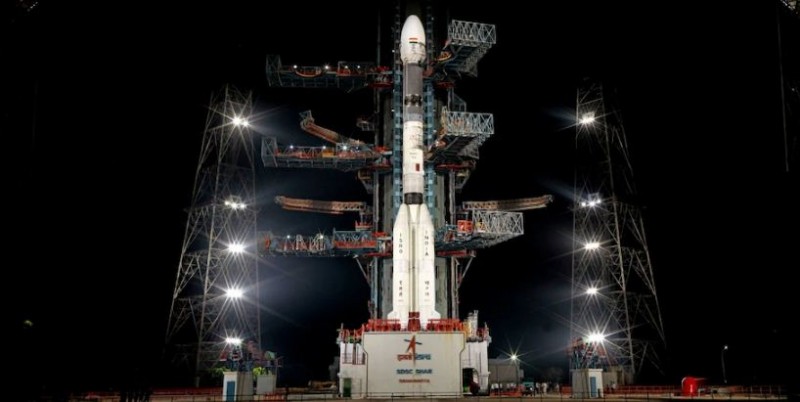
Andhra Pradesh: NVS-1, the Indian Space Research Organization's (ISRO) newest navigational satellite, is scheduled to launch today may 29. A Geosynchronous Satellite Launch Vehicle (GSLV) will launch the 2,232-kilogram satellite from Sriharikota in Andhra Pradesh, at 10.42 am
The national space agency said last week that the GSLV-F12/NVS-01 mission is set to launch on May 29 at 10:42 IST from the second launch pad at Satish Dhawan Space Centre in Sriharikota. The first of India's second-generation NavIC satellites is called NVS-01. It is a constellation of seven satellites in various orbits that functions as a regional navigation system.
The satellite will be powered by two solar arrays that have a combined power output of 2.4 kW, paired with a lithium-ion battery to support payload and bus load during the eclipse. The satellite uses a combination of passive and active temperature management techniques, a unified bi-propellant propulsion engine, and a zero-momentum system with reaction wheels for three-axis body stabilisation.
This mission, which is expected to last 12 years, will also include an atomic clock made in India by the Space Application Centre in Ahmedabad. ISRO emphasises that only a select few countries have access to this important technology, which is the clock.
The GSLV will once more deploy the homegrown cryogenic stage as the 51.7-meter-tall rocket gets ready for its night flight. With a 420-ton liftoff mass, this powerful rocket should travel at an astonishing 36,568 miles per hour. The cargo is anticipated to split once it reaches space after about 18 minutes of flight.
About ISRO: ISRO, or the Indian Space Research Organisation, is the space agency of the Government of India. Established in 1969, ISRO has been at the forefront of India's space exploration and satellite technology endeavors. It is known for its significant contributions to space research, satellite launches, and space applications.
One of the remarkable achievements of ISRO is its Mars Orbiter Mission (MOM), also called Mangalyaan, which successfully reached Mars orbit in September 2014. India became the first country to achieve Mars orbit on its maiden attempt, and the mission was accomplished at a remarkably low cost compared to similar endeavors by other nations.
ISRO has also demonstrated its capability in launching satellites into various orbits, including geostationary orbit, polar orbit, and sun-synchronous orbit. It has launched numerous satellites for communication, remote sensing, scientific research, and meteorological purposes, thereby facilitating crucial advancements in areas such as communication, weather forecasting, and resource mapping.
Over the years, ISRO has become an epitome of cost-effectiveness and frugal innovation in space exploration. It has consistently strived to make space technology accessible and beneficial to the common man, focusing on societal applications and developmental projects like telemedicine, disaster management, and education.
ISRO continues to push the boundaries of space exploration, with ambitious plans for future missions, including lunar exploration, human spaceflight, and interplanetary missions. The organization's dedication, scientific acumen, and determination have propelled India to become a significant player in the global space arena.
ISRO to launch NVS-01 navigation satellite Next Week